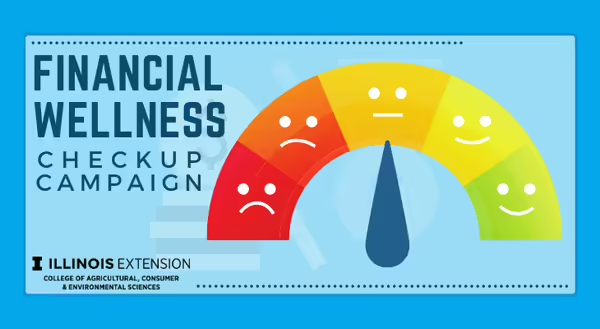
Over the past few months, the economic climate has shifted dramatically with high unemployment rates and other levels of financial instability. To help us all sort through the implications of this era, the consumer economics team has launched a new campaign, Financial Wellness Checkup to discuss and promote positive financial behaviors. Our goal is to provide practical tips and resources for consumers as they work to manage their finances and improve their overall well-being.
This week, we're going to take a look at how to create a credit management plan. The steps outlined below will help you think through the steps to take that will help you become an active manager of your own financial health and well-being.
Your Right to Fair Credit: Credit allows us to purchase big-ticket items that we wouldn’t be able to buy out-of-pocket. For more information on access to fair credit, explore, A Summary of Your Rights Under the Fair Credit Reporting Act: Consumer Financial Protection Bureau.
Make a Dent in Debt: What are some money management strategies that help us become better managers of our money? Make a dent in your debt by choosing an effective management strategy. The Family Financial Feud podcast has a recent episode on debt management strategies, Make a Dent in Your Debt.
Consider a Secured Credit Card: Secured credit cards offer opportunities to help consumers build or rebuild their credit. If you have a short credit history or you are trying to rebuild your credit, a secured credit card can help you slowly and steadily improve your credit. To learn more about this type of card, read, What Are the Different Types of Credit Card? on the Be Centsible blog.
Understand Your Credit Score: A credit score is a three-digit number that is the result of a mathematical algorithm used to evaluate your past relationship with credit. Payment history, Amounts Owed, Length of Credit History. New Credit & Credit mix are essential in assessing a score. Find more information about credit scores on the Plan Well Retire Well blog, I’m Thinking of a Number between 300 to 850.
Protect Your Identity: A credit freeze allows consumers to restrict access to your credit file. A free tool makes it difficult for identity thieves to open accounts in your name. Explore a credit freeze to protect yourself from identity theft. Find more information on the Federal Trade Commission website, Credit Freeze FAQs.
Shop for the Right Credit Card: Explore the best options, interest rate, and your purpose of the card. Credit cards allow us to buy now and pay later. Shop around for the right credit card for you. What are the Different Types of Credit Card? on the Be Centsible blog.
Check Your Credit Report: A credit report is a document showing your credit history going back 7-10 years. You are entitled to a free credit report annually from one of the three major credit bureaus. Access your free credit report today.
Effective credit management supports long-term financial health and well-being. These credit topics provide brief overviews of several credit-related issues and the impact on consumer behaviors. If you have questions about any of these credit topics, please contact one of the educators on this page.